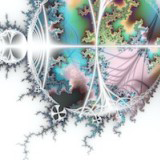For the last 2 weeks I’ve been working with metadata and the information that I want to track in Obsidian. As my Digital Garden, keeping information about the books I read, the movies I watch and the games I play, creates a full picture of my life (hey, maybe one day someone will be interested).
Two factors triggered this latest dive into an all to familiar rabbit hole.
- Learning some people have moved away from Goodreads to track their reading provides another way to pull data from the cloud to my control, and
- Accidentally discovering the Obsidian Book Search plugin for quickly pulling book information into Obsidian.
Rather than detail everything I’ve done, I’m going to share what I’ve learned for years and years of applying metadata to my images and records.
Rule 1 - Don’t track what’s available elsewhere
The amount of metadata you could track is amazingly large. My advice. Don’t Duplicate Public Knowledge, especially if the metadata is available elsewhere. It’s very tempting to rebuild the Internet and not realise you are doing it. Here’s are some examples.
- I know all the states and territories of Australia and their capital cities. There is no need for me to track this because it I have immediate recall. If I wanted to know the population of a city, I can quickly look it up.
- I may want to know when a book is published, but it’s very unlikely I need to track who the publisher is. Again, I can look that up.
The purpose behind this rule is to cut down on effort. It takes time to hunt down extraneous metadata and more time to massage it into the format you need. Then, if you every change systems, more metadata to be converted from one format to another.
Rule 2 - Break rule 1 when you need to
If adding metadata to a record makes it more useful to you, then add it. Again, some examples.
- I know most of the books Stephen King has written but to have my system track which I’ve read and when, it helps to have him listed as the author.
- You are working out which metadata you need to keep.
- You can only get a piece of metadata now. In the future it won’t be available to you.
When you first start, grab all the metadata you need for enough items to allow you to determine what you really need to keep. 15-20 records worth, no more. It’s enough to identify patterns, but not too much that the initial collection outweighs any benefit you will ever get from having it.
Rule 3 - Pare down the list
As I wrote above, only keep what works for you. Keywords, keywords, keywords. Mostly useless to me. Though it’s tempting to add descriptive keywords to photos for example, I’ve found I never need them and the time spent adding them is not recoverable.
It’s all about the time to add metadata vs the utility of it being there.
First, think about how you want to query your system and only keep the metadata that helps you do that.
My lists
| Type of document | Metadata |
|---|---|
| Photo | Date taken |
| Location (country.state.city.suburb.address) | |
| GPS location | |
| People | |
| Event (eg. birthday.david) | |
| Book | Author, and narrator for audiobooks |
| Number pages/duration of audiobook | |
| Dates read/listened | |
| Series and sequence in series | |
| Publication year | |
| Movie | Director |
| Actor | |
| Year | |
| Dates watched | |
| Series (sequence comes from year) |
That’s all. I can calculate everything else that I need from this information.
